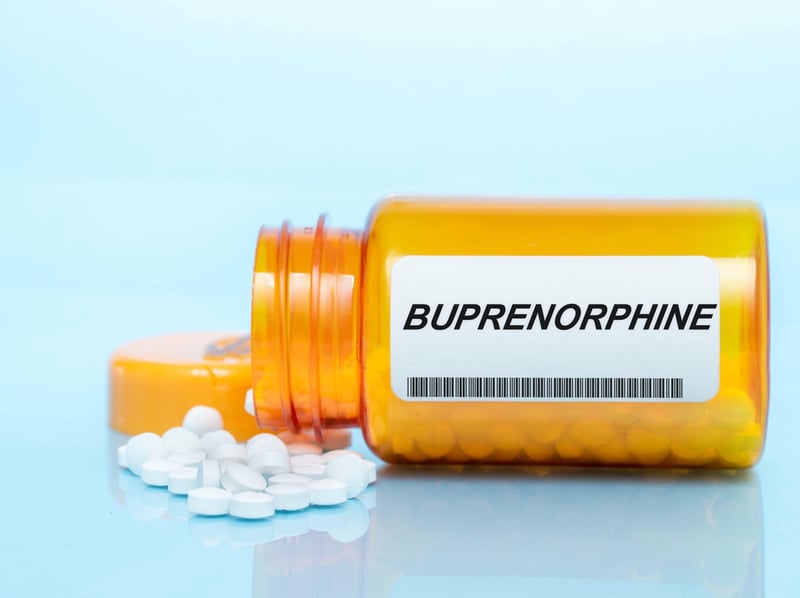Get Healthy!

- Posted May 11, 2023
Among People at Risk of Opioid Overdose, Black Patients Much Less Likely to Get Treatment
Medications that treat opioid addiction and prevent overdose deaths are drastically under-prescribed in the United States, particularly for Black patients, a new study has found.
Disabled people on Medicare are not likely to be prescribed either buprenorphine -- the best medication for treating opioid addiction -- or naloxone (Narcan), a drug that can reverse a life-threatening overdose, researchers report in the May 10 issue of the New England Journal of Medicine.
Further, Black Americans are even less likely than whites to receive these meds following a medical event that clearly indicates the patient has opioid use disorder, said lead researcher Dr. Michael Barnett, an associate professor of health policy and management at the Harvard T.H. Chan School of Public Health in Boston.
"We found that white patients were about 80% more likely to get any treatment after one of these central events than Black patients,"Barnett said. "We were particularly surprised at how low the rates of treatment were, given the kind of high level of need and high risk in this particular population."
For the study, Barnett and his colleagues analyzed claims data for more than 23,000 disabled people 18 and older covered by Medicare between 2016 and 2019.
This group is disproportionately affected by opioid addiction, with some estimates suggesting they represent one in four opioid overdoses in the United States, researchers said in background notes.
The researchers looked for events that would have brought a person's opioid use disorder to the attention of a health professional -- an overdose, a hospitalization for drug use-related infection or detox care, for example.
They then assessed whether the patient received a prescription for buprenorphine or naloxone within six months of that event.
Results showed that only 23% of white patients, 19% of Hispanic patients and 13% of Black patients received a buprenorphine prescription.
Buprenorphine is "a medication that is known to be pretty effective, and yet across the populations identified in the study, prescription rates are just pretty abysmal generally,"said Christine Khaikin, a senior health policy attorney for the Legal Action Center, an advocacy group for building health equity.
The rates were similarly low for naloxone -- 23% for whites, 21% for Hispanics and 14% for Blacks.
Buprenorphine prescription rates could have been dampened by regulations that at the time restricted who could prescribe the treatment drug, Barnett noted. Those restrictions were recently lifted.
But for naloxone, "which has no such restrictions at all, we saw basically disparities of the exact same magnitude,"Barnett said. "There's no reason why clinicians shouldn't be prescribing this medication to people with overdoses, yet we saw a huge gap between white and Black."
"And not only that, even though there's a big gap between white and Black, the overall rates of people receiving any buprenorphine or naloxone were extremely low,"Barnett added.
What's worse, patients identified with opioid addiction were more likely to be prescribed benzodiazepines -- drugs typically used to treat anxiety that can dramatically increase risk of overdose when used with opioids.
About 37% of whites, 30% of Hispanics and 23% of Blacks were prescribed benzodiazepines within six months of an opioid-related health event, results show.
Researchers ruled out regional differences and patients' access to medical care as potential explanations for the health inequities they uncovered, Barnett said.
"What we found here was that, as you would expect in a fairly sick population of folks with disability, white, Black and Hispanic patients were all seeing doctors quite frequently, including emergency visits and office visits with mental health and primary care providers,"Barnett said. "Yet, you're still seeing this huge disparity."
One potential explanation might be the disjointed nature of American health care, Barnett said. He noted that a recent study of the VA health system found much less disparity between whites and Blacks in treatment for opioid addiction -- on the order of 42% versus 39%.
"To me, that suggests that maybe there's something about the consistency and shared providers used by veterans that might be more of an equalizer than the very fragmented and segregated health care system that whites and Blacks engage with in other settings,"Barnett said.
The stigma surrounding opioid addiction also could play a factor, Barnett said.
"There's just enormous amounts of stigma around opioid use disorder that make providers uninterested in treating these patients, and makes patients feel like they're undeserving of treatment or that they don't want to tell others about it,"Barnett said.
The criminalization of addiction through America's war on drugs added to that stigma, Khaikin said. Blacks are less likely to trust doctors and seek care because there's a real risk they'll wind up behind bars.
"There is likely to be a criminal response to people of color who experience opioid use disorder,"Khaikin said. "We are still very much treating people with substance use disorders with a criminal response, and that needs to change."
The United States needs to dramatically rethink its approach to opioid use disorder, treating it as an illness rather than a crime or a weakness in character, Barnett said.
"Health care providers need to feel that addiction is very common and it's something that they should be able to treat,"Barnett said. "It's part of what it means to be a clinician. It's not somebody else's job."
The National Institute on Drug Abuse and the National Institute on Aging funded the study.
More information
The U.S. National Institute on Drug Abuse has more about effective treatments for opioid addiction.
SOURCES: Michael Barnett, MD, associate professor, health policy and management, Harvard T.H. Chan School of Public Health; Christine Khaikin, senior health policy attorney, Legal Action Center; New England Journal of Medicine, May 10, 2023







